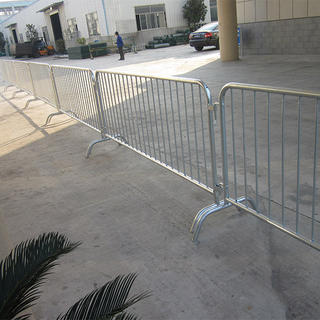Dec . 05, 2024 00:16 Back to list
Top Cold Rolled Steel Bar Manufacturers and Their Key Offerings for Various Industries
The Importance of Cold Rolled Steel Bars and Their Manufacturers
Cold rolled steel bars are an essential component in various industries, including construction, automotive, and manufacturing. These steel bars are created through a process that involves rolling the steel at room temperature, which enhances its strength and surface finish, making it a preferred choice for many applications. This article will explore the significance of cold rolled steel bars, the manufacturing process, and the key players in the industry.
What is Cold Rolled Steel?
Cold rolling is a metalworking process where steel is processed at or near room temperature. This method contrasts with hot rolling, where metal is shaped at high temperatures. The cold rolling process involves several steps the steel is first cast into a slab or ingot, then reheated and passed through rollers. As the metal cools, it becomes harder and more robust. The cold rolling process also refines the surface finish, making it smoother and more uniform. Consequently, cold rolled steel bars possess better dimensional accuracy and tighter tolerances than hot rolled bars.
Advantages of Cold Rolled Steel Bars
The benefits of cold rolled steel bars are numerous. One of the primary advantages is increased strength. The cold rolling process enhances the yield strength of the steel, making it ideal for applications that require durability and load-bearing capacity. Additionally, cold rolled steel bars offer improved surface quality, which is crucial for applications that necessitate precise machining and welding.
Another significant advantage is the versatility of cold rolled steel. It can be easily formed into various shapes and sizes, allowing manufacturers to produce a wide range of products. This adaptability makes cold rolled bars suitable for various applications, from structural components to intricate automotive parts.
The Manufacturing Process
The production of cold rolled steel bars involves several critical steps. First, hot rolled steel is processed into semi-finished products (like billets or slabs). These products are then cooled before being fed into the cold rolling mills. The cold rolling process typically involves multiple passes through a series of rollers that gradually shape the steel into the desired thickness and shape.
After the rolling process, the steel may undergo additional treatments like annealing, which helps relieve internal stresses and improve ductility
. Finally, the finished steel bars are cut to length, inspected for quality, and prepared for shipment.cold rolled steel bar manufacturers

Quality control is paramount in the production of cold rolled steel bars. Manufacturers must adhere to strict industry standards to ensure the bars meet the required specifications. This includes testing for mechanical properties like tensile strength, yield strength, and hardness, as well as surface quality assessments.
Key Players in the Industry
Several manufacturers dominate the cold rolled steel bar industry, each contributing to advancements in technology, quality, and sustainability. These companies invest in state-of-the-art equipment and innovative processes to enhance their production capabilities.
1. U.S. Steel A leading American integrated steel producer, U.S. Steel offers a wide range of cold rolled steel products, catering to various industries.
2. ArcelorMittal As one of the largest steel producers in the world, ArcelorMittal is known for its high-quality cold rolled steel products and commitment to sustainability.
3. Nucor Corporation Nucor is a major player in the U.S. steel industry, focusing on recycling steel and producing cold rolled products with an emphasis on environmental responsibility.
4. POSCO Based in South Korea, POSCO is renowned for its advanced manufacturing techniques and high-quality cold rolled steel used in various applications.
Conclusion
Cold rolled steel bars play a pivotal role in today's industrial landscape, providing strength, versatility, and improved surface finish for countless applications. The manufacturing process is highly technical, requiring precision and adherence to strict quality standards. With major manufacturers continually innovating and improving their processes, the future of cold rolled steel bars looks promising. As industries evolve, the demand for high-quality steel products will undoubtedly continue to rise, ensuring that cold rolled steel bars remain a vital component of modern manufacturing.
-
High-Quality Steel Grating Solutions for Industrial Applications | Durable, Safety, Customization
NewsJul.13,2025
-
Advanced Solutions-CompanyX|Enterprise Efficiency&Cost Reduction
NewsJul.13,2025
-
Sustainable Manufacturing-EcoTech Innovations|Waste-to-Energy System&Zero Emissions
NewsJul.13,2025
-
Welded Wire Mesh- Buildings Wiremesh Co., Ltd.|Durable Construction Material&Industrial Strength Solution
NewsJul.13,2025
-
Smart Production Solutions-Example Corp|AI Automation&IoT Monitoring
NewsJul.13,2025
-
Advanced Industrial Solutions-Advanced Industrial Solutions|Manufacturing Efficiency&Productivity
NewsJul.13,2025

